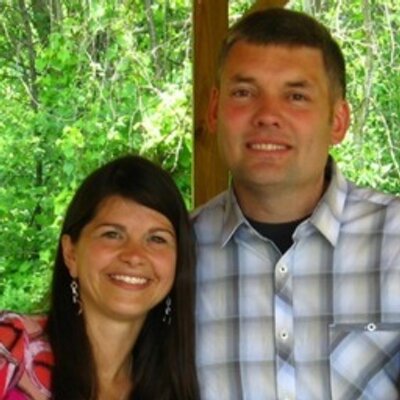 Randy Harp did a superb job sharing much of his acquired wisdom in the area of strategic planning for churches in a break-out session at the 2015 BBFI Fall meeting at High Street Baptist Church (Springfield, MO). Our church had a strategic planning session and it was the pivotal moment of our church that gave us renewed purpose. I encourage every pastor to consider stepping back and uncovering why you do what you do.
Randy Harp did a superb job sharing much of his acquired wisdom in the area of strategic planning for churches in a break-out session at the 2015 BBFI Fall meeting at High Street Baptist Church (Springfield, MO). Our church had a strategic planning session and it was the pivotal moment of our church that gave us renewed purpose. I encourage every pastor to consider stepping back and uncovering why you do what you do.
Here are some of the ideas and lessons that Randy shared…
Definition:
1. “A strategy is simply a logical plan that gets you from where you are to where God wants you to be” – Nelson Searcy
2. “The process that determines how your ministry will accomplish its mission.” – Aubrey Malphurs
3. Two types of strategy:
– Ongoing strategic systems (weekly services, assimilation)
– Time-bound strategies (special events, marketing, Easter)
A Theology of Strategy:
1. Genesis 1- God had a strategy in creating the universe.
2. Joshua – God gave very specific strategies as they conquered the Promised Land.
3. Nehemiah – had a very specific strategy in rebuilding the walls.
4. Matthew 28:19-20/ Acts 1:8 – a specific strategy for reaching the world with the Gospel.
Why Develop a Strategy:
1. A successful strategy provides structure.
2. Developing a strategy forces you to think on paper.
3. A strategy provides focus (to do/not to do list)
4. A strategy is good for your team.
5. A strategy saves you time. (every minute spent in planning saves 10 minutes in execution. The last 15 minutes of the day should be spent planning the next day.)
6. A strategy makes it easier to ask others for help. (People tend to get involved in what they understand. People say no to confusing.)
7. A lack of strategy will limit your ministries growth.
Goals of Strategy:
1. Who are we? objective
2. What are we wanting to do? purpose
3. Who are we trying to reach? target audience
4. Where are we now? evaluation (invite someone from another church to attend and evaluate your service.
5. How did we get here? past trends (don’t tear down a wall until you know what it was built)
6. Where are we going? forecasting
7. How do we get there? planning
8. What are the biggest needs?
9. What is our timing? schedule
10. How much will it cost? budgeting
Elements of a successful strategy
1. Mission (Purpose) – Answers the questions, ‘What we are supposed to be doing?’ and/or ‘Why do we exist?’
2. Vision – Answer the question, ‘What kind of ministry do we want to be?’ and/or ‘What will we look like when we are effectively accomplishing our purpose?’
3. Values – Answers the questions, ‘Why do we do what we do?’ and/or ‘Who does God want us to become?’
4. Ministry Strategy – Answers the question, ‘How do we accomplish our mission and vision?’
– Clarify the win. Define what is important at every level of the ministry.
– Think steps, not programs. Before you start anything, make sure it takes you where you need to go. Make sure the steps aren’t too long.
– Narrow the focus. Do fewer things in order to make a greater impact.
– Teach less for more. Say only what you need to say to the person you’re trying to keep. Randy uses ‘one point sermon’.
– Listen to outsiders. Focus on who you’re trying to reach, not who you’re trying to keep.
5. Goal Setting
– Principles on goal-setting: Goals provide direction, build anticipation, force you to become more than you are right now, are not created but revealed. Sometimes goals are public but some are private.
– Major objectives, goals and tasks in a successful strategy should be written in SMART language.
Specific (complete each statement fully and clearly)
Measurable (include exact results that can be tracked and measured)
Attainable (is the statement realistic? too large?)
Realistic/Relevant (does the statement fit with the others – is it relevant where it is placed within the strategy?)
Time bound (what’s the completion date?)
– Time Lines
Benefits of time lines: it is the best way to stay organized. it aids in professionalism. It will save you money. It allows getting other people on board. It allows more people to participate.
What should you put on timeline? Sermon message series, Big events (one-time events), regular events (consistent).
One year calendar: Principle of big rocks and little rocks and sand and water. Don’t put stuff on a calendar just for the sake of putting something on the calendar.

Mr & Mrs Randy Harp
– Evaluate / Gauges. What gets measured gets improved. What are some gauges that should be used (examples: attendance, offerings, first time guests, 2nd time guests, involvement). SWOT: Strengths, Weaknesses, Opportunities, Threats.
4 Good questions to ask about an event/etc: What was right? What was not right? What was missing? What was confusing?
Suggested reading: Advanced Strategic Planning (Malphurs), Visioneering (Andy Stanley), Seven Practical Practices of Effective Ministry (Andy Stanley), Eat that Frog.
You can read my other articles about this meeting at: Revitalization.
like the article on strategic planning